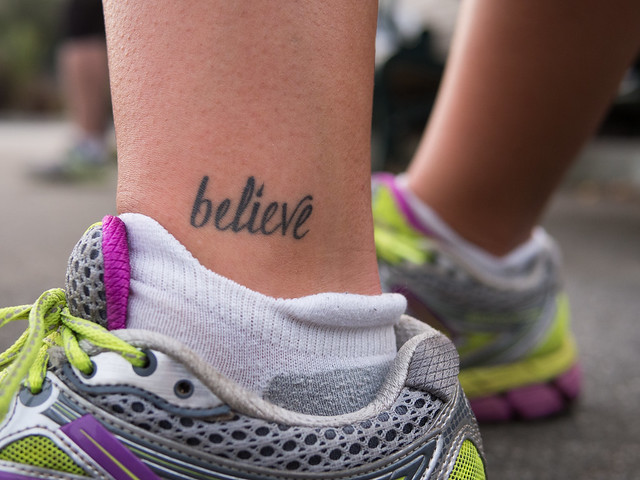
The Power of Our Metaphors
Our metaphors help us decide how we want to live our lives.
Most of us do not choose our metaphors with much intention. We experience the world in ways shaped by the places and cultures in which we live as well as our families and their histories.
Choosing either how we experience the world around us or our own places in it is rare for us.
Many of us are not particularly aware of the assumptions and expectations we make about ourselves and our lives. Life is, by its very nature, beyond our ability to understand it. Does anyone truly grasp and appreciate all the complexities and concepts of life?
Some of us assume life is a competitive contest. Whoever dies with the most toys wins. We are not necessarily focused on winning, but we definitely want to avoid losing.
Others approach life as more cooperative, or more communal. Some of us would like to believe life is intended to benefit each of us. We might say a rising tide lifts all boats, though it is easy to forget not everyone has a boat.
Our metaphors for life are often grounded in specific experiences or events. We began to form the ways we understand the world, and ourselves, before we realized it.
The ways we see the world form the framework for how we live our lives, similar to the walls of a building. It is difficult for us to question our own assumptions.
We tend not to see the ways our metaphors affect how and what we experience and believe.
Many of us will fight long and hard to defend assumptions we have not thought through particularly well.
Questioning the ways we see and experience the world may be one of the most challenging things we do.
Discovering Our Metaphors
The metaphors which resonate with us can often tell us a great deal about ourselves.
Those which draw us in have power and meaning for us. Many of us begin understanding life through other people’s metaphors. We may have inherited them or heard them from other people when we were young. People may have told us stories and we accepted them as true.
We begin to believe in a world like Star Wars or The Godfather or The Matrix.
Those of us who received other people’s metaphors often get to a point when we begin to question them.
It is important our metaphors connect with us as deeply as possible. Some of us are drawn to tangible stories we can experience with our senses. Other people prefer conceptual, visionary ones which float just beyond our reach.
Our metaphors for our lives may be primarily emotional or particularly analytical. We may see life as being about community or focused on our own individual internal processes.
Some people see life as all about being taken through a set of specific steps in a clear direction. Others of us live into a metaphor of openness, flexibility, and developing newness.
The time and effort we put into discovering our metaphors benefits us. The more deeply we explore and the more clearly we see our own metaphors, the more they can teach us.
What metaphors draw you into deeper understanding?
We get to know ourselves better by seeing our metaphors more clearly. As we gain insights we understand more clearly why we choose the metaphors we do.
It can be a challenge for us not to become too closely enmeshed in our own metaphors. People can become so wedded to their own stories they put more energy into defending them than understanding them.
Going Beyond Our Metaphors
The stories of our lives are filled with metaphors, as well as with arguments over competing perspectives.
We can be so attracted to our own ways of seeing things we forget they are metaphors.
There are benefits to metaphors. They help us explain and illustrate what we believe to other people. Some are usually more accessible than complex literal explanations. They allow us to see new aspects of the world they describe.
One challenge of our metaphors is they encourage us to become heavily invested in the stories they tell. It is easy for us to convince ourselves we have found the metaphor which best captures how life works.
We need to remember, no matter how great our metaphors might be, they are not real life. Our reflection, insights, and questions may reveal aspects of life which are new to us. We may begin to understand aspects of life which have eluded us in the past.
Stories might help us gain insights and appreciate questions in new ways. We will never have comprehensive understanding.
Our ways of experiencing life are still metaphors, not a complete picture of the whole of life itself. There is always more.
Beginning With Our Metaphors
It is essential for us to appreciate whether we are seeing life, and ourselves, clearly.
Our metaphors might allow us to see some things in new ways, though they tend to obscure other aspects.
The ways we choose to understand life are imperfect images. They draw us in and persuade us with their power and meaning. Some of them can highlight things we might have missed. They also make it more challenging to recognize the value of other truths about life.
We need to take some time to be still, to listen, to close our eyes and take deep breaths. The stories we choose to give our attention can help us.
The more freely and openly we share the ways we experience life with other people the more clearly we can see.
Like the fable of the blind men and the elephant, we share our experiences. Rather than arguing about who is right and who is wrong, we gain insights from each other.
Our metaphors for life can become helpful tools rather than stumbling blocks or arguments.
What metaphors are shaping our insights and understanding today?
Which metaphors are creating obstacles for our reflection this week?
[Image by eekim]
Greg Richardson is a spiritual director in Southern California. He is a recovering assistant district attorney and associate university professor, and is a lay Oblate with New Camaldoli Hermitage near Big Sur, California. Greg’s website is StrategicMonk.com and his email address is [email protected].












